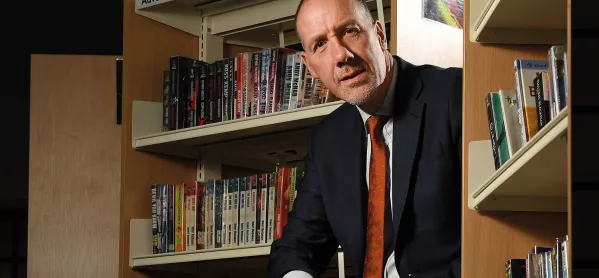- Home
- Six tests Monday’s Budget must meet for schools, teachers and students
Six tests Monday’s Budget must meet for schools, teachers and students

When I speak to leaders of schools and colleges and ask them what the biggest issue they are dealing with is, their answers are immediate and bleakly consistent: funding.
As one leader of a school in the north-east said to me recently: "I can’t keep doing this – yet another restructure, another set of redundancies, bigger classes, fewer courses."
Last Friday I met parents and carers of children with special needs, hearing heartbreaking accounts of the loss of specialist support, an ever-shrinking pool of dedicated teaching assistants, the sense that someone somewhere thinks it’s acceptable for our most vulnerable young people to take the brunt of real-term funding cuts.
This cannot continue. It’s why we need to see action.
In his Budget on Monday, the chancellor simply must address the shortfall of funding in our schools and colleges. The government’s often-repeated claim that it is spending record sums on schools has been shown to be woefully misleading. The total amount spent on schools has risen only because the number of pupils has increased by more than 600,000 over the past eight years. And recent analysis by the Institute for Fiscal Studies shows that total funding per pupil has fallen by 8 per cent in real terms over the past eight years, including cuts of over 20 per cent to school sixth-form funding.
The government is due to conduct a comprehensive spending review next year, which needs to result in improved funding for education in the longer term.
But we can’t afford to wait for that. We also need immediate action in Monday’s Budget. This is particularly so in respect of our woefully funded sixth forms and colleges, where the basic rate of government funding is just £4,000 per student, compared to university tuition fees of up to £9,250.
That’s why ASCL continues to work alongside the NEU and the NAHT in calling for fair funding for education. And it’s why we are setting six tests that Philip Hammond’s Budget must meet:
1. Reverse education cuts now
This academic year is beginning with more cuts to educational provision and more cuts to staffing in schools. The government’s announcement must ensure that every school is guaranteed at least the same money per pupil in real terms next year as when it took office in 2015.
2. New money from the Treasury
Existing government plans mean real terms cuts in funding and cuts in education provision. The government must announce genuinely new money for schools, not money taken from other areas of education spending. At least £2.8 billion more is required every year just to maintain funding in real terms in the face of inflation, cost increases and rising pupil numbers.
3. High-needs, early years and post-16 education fairly funded
Politicians will try to focus simply on schools’ core funding. Funding must also be increased for “high needs” pupils, early years pupils and post-16 students, who have suffered even bigger cuts since 2010.
4. A five-year funding plan
Schools need to be able to plan for the future. With pupil numbers rising and costs increasing, they need to know how much money they will receive. Funding must be announced and guaranteed for at least the next five years.
5. Historic underfunding addressed
Schools in historically underfunded areas must receive extra money through a process of levelling up with better-funded areas. Fair funding won't be achieved by taking money away from some schools to give to other schools. There must be enough new money to make a difference for every pupil, wherever they live.
6. All pay rises fully implemented and fully funded
The government must implement the recommendations of the STRB (School Teachers’ Review Body) in full. The cost of all pay awards and pay agreements for school teachers, sixth form college teachers and support staff must be fully funded by the government, so that schools and colleges are not forced to make cuts in order to implement pay rises for staff.
Monday’s Budget will be all about money. But in education it’s never about money: it’s about values – about what matters most.
With the prime minister recently announcing the end of the age of austerity, now we need to see action from the chancellor. That means proper, sustained investment in the educational opportunities of all our children and young people, whatever their backgrounds and whatever their distinctive needs.
Geoff Barton is general secretary of the Association of School and College Leaders
Keep reading for just £1 per month
You've reached your limit of free articles this month. Subscribe for £1 per month for three months and get:
- Unlimited access to all Tes magazine content
- Exclusive subscriber-only stories
- Award-winning email newsletters



